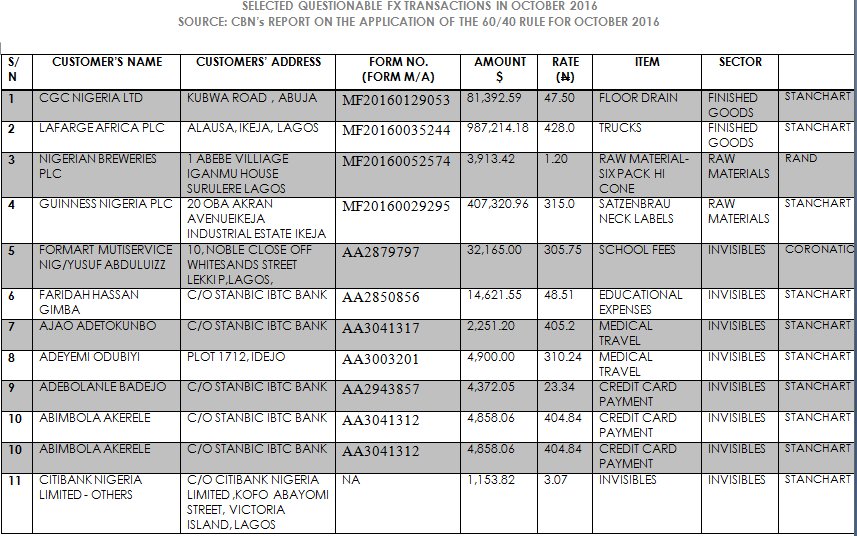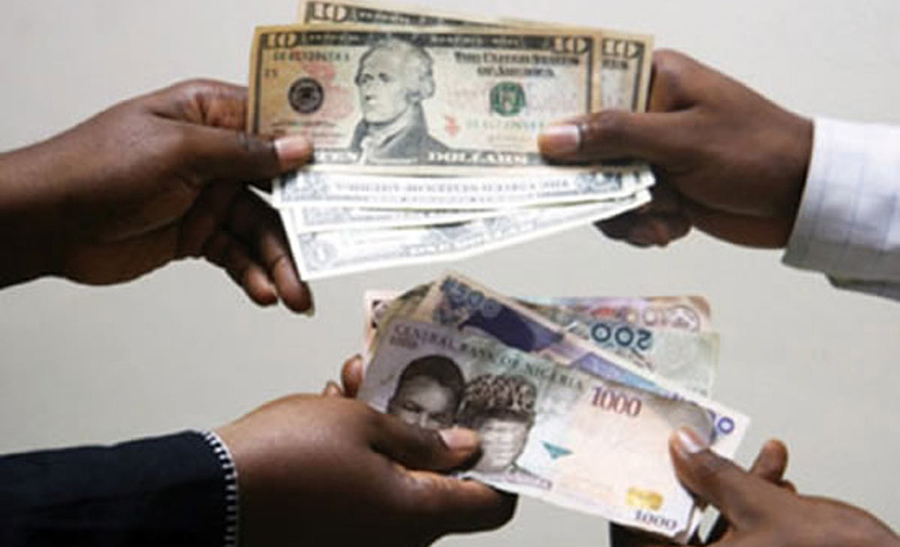The Central Bank of Nigeria (CBN) dollar rate to Naira plays a crucial role in the country's economic stability and global trade relations. As the official exchange rate set by the CBN, it serves as a benchmark for businesses, investors, and individuals engaged in international transactions. Understanding this rate is essential for anyone looking to navigate the complexities of the Nigerian financial market.
Fluctuations in the CBN dollar rate to Naira can significantly influence various sectors of the economy, from import-export activities to personal savings. With Nigeria being one of Africa's largest economies, the stability of its currency is closely monitored by stakeholders both locally and internationally.
In this comprehensive guide, we will delve into the intricacies of the CBN dollar rate to Naira, exploring its history, current trends, and the factors that affect its movement. By the end of this article, you will have a deeper understanding of how this exchange rate impacts the Nigerian economy and how you can make informed decisions based on this knowledge.
Read also:Places To Eat In Weehawken Nj
Table of Contents
- Introduction to CBN Dollar Rate to Naira
- A Brief History of the CBN Dollar Rate to Naira
- Factors Influencing the CBN Dollar Rate to Naira
- Current Trends in the CBN Dollar Rate to Naira
- Official vs. Parallel Market Rates
- Impact of CBN Dollar Rate on the Economy
- How Investors Can Navigate the CBN Dollar Rate
- What Individuals Should Know About the CBN Dollar Rate
- Government Policies and the CBN Dollar Rate
- Future Outlook for the CBN Dollar Rate
Introduction to CBN Dollar Rate to Naira
The CBN dollar rate to Naira is the official exchange rate set by the Central Bank of Nigeria, which dictates how many Naira can be exchanged for one US Dollar. This rate is determined through a combination of market forces, government policies, and international economic conditions. It is a critical indicator of the Nigerian economy's health and stability.
For businesses and individuals involved in international trade, the CBN dollar rate to Naira serves as a reliable reference point for pricing goods and services. It also affects the cost of imports and exports, influencing the competitiveness of Nigerian products in the global market.
In recent years, the CBN has implemented several measures to stabilize the Naira, including interventions in the foreign exchange market and reforms aimed at boosting the local currency's value. These efforts highlight the importance of maintaining a stable exchange rate for economic growth and development.
A Brief History of the CBN Dollar Rate to Naira
Historical Context
The Nigerian Naira was introduced in 1973, replacing the Nigerian Pound. Since then, the CBN has played a pivotal role in managing the exchange rate through various policies and interventions. Initially, the Naira was pegged to the British Pound, but over time, it transitioned to a floating exchange rate system.
Key Milestones
- 1986 - Structural Adjustment Program (SAP): The CBN adopted a floating exchange rate system, allowing market forces to determine the value of the Naira.
- 2016 - Removal of Fixed Exchange Rate: The CBN abolished the fixed exchange rate and allowed the Naira to float freely, leading to significant fluctuations in its value.
- 2020 - Unification of Exchange Rates: The CBN merged the official and parallel market rates to create a single exchange rate, aiming to reduce arbitrage opportunities and stabilize the currency.
These milestones demonstrate the evolving nature of the CBN dollar rate to Naira and the challenges faced by the Nigerian economy in maintaining currency stability.
Factors Influencing the CBN Dollar Rate to Naira
Macroeconomic Indicators
Several macroeconomic factors influence the CBN dollar rate to Naira, including inflation rates, interest rates, and economic growth. A stable economy with low inflation and high interest rates tends to attract foreign investment, strengthening the Naira against the Dollar.
Read also:Actor Who Plays Ragnar
Commodity Prices
Nigeria's economy is heavily reliant on oil exports, making it vulnerable to fluctuations in global oil prices. When oil prices rise, the country's foreign exchange earnings increase, boosting the Naira's value. Conversely, a decline in oil prices can lead to a weaker Naira.
Political Stability
Political stability is another critical factor affecting the CBN dollar rate to Naira. Uncertainty caused by political instability can deter foreign investors, leading to a depreciation of the Naira. Conversely, a stable political environment can attract investment and strengthen the currency.
Current Trends in the CBN Dollar Rate to Naira
As of the latest data, the CBN dollar rate to Naira has shown signs of stabilization, thanks to the central bank's intervention in the foreign exchange market. However, challenges such as rising inflation and global economic uncertainties continue to pose risks to the Naira's value.
According to the International Monetary Fund (IMF), Nigeria's economy is expected to grow at a moderate pace in the coming years, which could positively impact the CBN dollar rate to Naira. However, sustained efforts are needed to address structural issues and improve the business environment.
Official vs. Parallel Market Rates
Official Exchange Rate
The official CBN dollar rate to Naira is determined through a transparent auction system, where banks and authorized dealers bid for foreign exchange. This rate serves as a benchmark for most financial transactions in the country.
Parallel Market Rate
In addition to the official rate, there exists a parallel market rate, which is often higher due to supply and demand dynamics. The CBN has taken steps to narrow the gap between the two rates, but challenges remain in achieving full convergence.
For individuals and businesses, understanding the difference between these rates is essential for making informed financial decisions.
Impact of CBN Dollar Rate on the Economy
Import and Export
The CBN dollar rate to Naira directly affects the cost of imports and exports. A weaker Naira makes imports more expensive, increasing the cost of living for consumers. On the other hand, a stronger Naira can make Nigerian exports less competitive in the global market.
Inflation
Exchange rate fluctuations can also influence inflation rates. A depreciating Naira often leads to higher import costs, which can translate into increased prices for goods and services. This, in turn, affects the purchasing power of consumers and the overall economic stability.
Foreign Investment
A stable CBN dollar rate to Naira is crucial for attracting foreign investment. Investors are more likely to invest in a country with a predictable exchange rate, as it reduces currency risk and enhances returns on investment.
How Investors Can Navigate the CBN Dollar Rate
For investors, understanding the CBN dollar rate to Naira is essential for making informed decisions. Key strategies include:
- Monitoring economic indicators such as inflation and interest rates.
- Staying updated on global economic trends and their potential impact on the Naira.
- Engaging in hedging strategies to mitigate currency risk.
By adopting these strategies, investors can navigate the complexities of the Nigerian foreign exchange market and maximize their returns.
What Individuals Should Know About the CBN Dollar Rate
For individuals, the CBN dollar rate to Naira affects various aspects of daily life, including the cost of imported goods and the value of savings. Key considerations include:
- Planning for future expenses by considering exchange rate fluctuations.
- Exploring investment opportunities in foreign currencies to diversify risk.
- Staying informed about government policies and their impact on the Naira.
By staying informed and proactive, individuals can better manage their finances in a constantly changing economic environment.
Government Policies and the CBN Dollar Rate
The Nigerian government, through the CBN, plays a critical role in managing the exchange rate. Key policies include:
- Intervening in the foreign exchange market to stabilize the Naira.
- Implementing reforms to improve the business environment and attract investment.
- Encouraging local production to reduce dependence on imports.
These policies aim to create a stable and sustainable economic environment, which is essential for maintaining a favorable CBN dollar rate to Naira.
Future Outlook for the CBN Dollar Rate
Looking ahead, the CBN dollar rate to Naira is likely to remain subject to various economic and political factors. However, with continued efforts to diversify the economy and improve governance, there is potential for long-term stability.
According to the World Bank, Nigeria's economic prospects are positive, provided the country addresses structural challenges and implements sound fiscal policies. This bodes well for the future of the CBN dollar rate to Naira and the overall economic outlook.
Kesimpulan
In conclusion, the CBN dollar rate to Naira is a critical component of Nigeria's economic landscape, influencing various sectors and stakeholders. Understanding its dynamics and the factors affecting its movement is essential for businesses, investors, and individuals alike.
We encourage you to stay informed about the latest developments in the Nigerian foreign exchange market and consider how they may impact your financial decisions. Share your thoughts and experiences in the comments below, and don't forget to explore other informative articles on our website.
Data sources: International Monetary Fund (IMF), World Bank, Central Bank of Nigeria (CBN).


